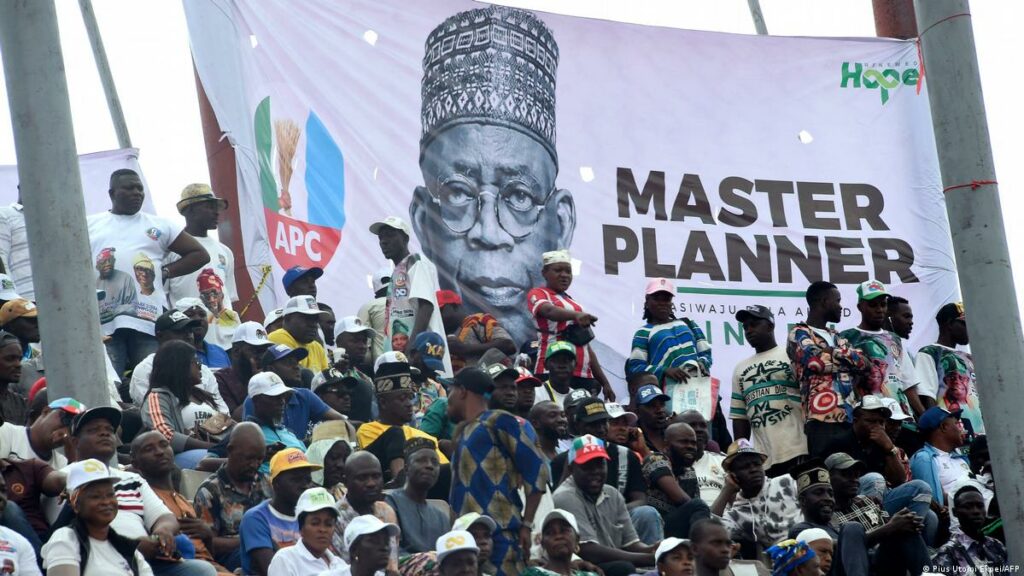More than 90 million people are registered to vote in Nigeria where President Muhammadu Buhari is stepping down after his two terms allowed by the constitution. Waving from the top of an open-air double-decker bus, the ruling party’s candidate Bola Tinubu of the All Progressives Congress (APC) paraded through the streets of Maiduguri in northeast Borno state.
Read More: Regional Cooperation Tops Agenda at AU Summit 2023
Several hundred supporters ran alongside the convoy as they made their way to Elkanemi Sports Centre where more people with flags and banners were gathered to hear the candidate speak. A political veteran and former governor of Lagos, Tinubu is expected to stage a final rally in his hometown on Tuesday.
In nearby Adamawa state, the main opposition candidate Atiku Abubakar of the Peoples Democratic Party (PDP) also made his entrance aboard a double-decker bus into Mahmud Ribadu Square in the city of Yola. A massive crowd awaited Abubakar, singing, dancing, many decked out in traditional clothes, with a camel even among the throng.
Outsider candidate Peter Obi from the Labour Party (LP) was not seen on the campaign trail on Saturday but took to social media to call on his supporters, “the Obidients”, to rally in several cities across the country. In the capital Abuja, several hundred Obi supporters wearing colourful attire marched from the centre to the city gate, chanting and blowing vuvuzula horns.
Another candidate vying for the top job in the nation, Rabiu Kwankwaso of the New Nigeria People’s Party (NNPP), was in northern Taraba state’s town of Mutum Biyu where crowds cheered him on. Campaigning is taking place as the nation faces widespread insecurity and tensions over a currency crisis.
Read More: Aso Rock Extends Use of Old Naira Notes Amid Cash Crisis
Unrest in the southeast is just one of the challenges facing security forces, who are also fighting a 14-year-old jihadist insurgency in the northeast and kidnapping gangs in the northest. Nigerians have also been struggling with a shortage of cash since the central bank introduced newly designed notes in December, banning old ones.
But in its effort to promote “cashless” payments and reduce the volume of money outside the banking system, the central bank printed a much smaller amount of notes than were previously in circulation. The lack of cash has triggered protests in major cities this week, with customers attacking banks and barricading roads just days before elections.
Tensions have also emerged inside the ruling APC party, with accusations that the cash crisis could frustrate Tinubu’s election bid.
Source: African News



